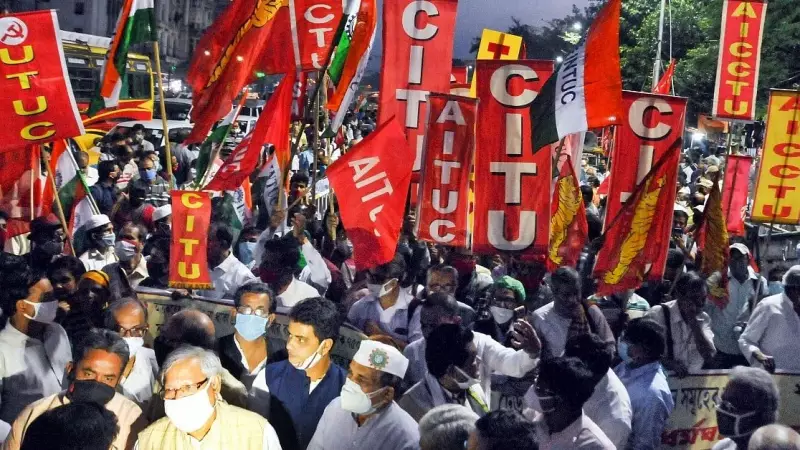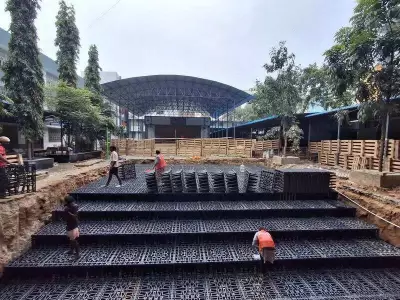
Unions Declare 'War on Working People', Announce Nationwide Action
Major trade unions in India have launched a scathing attack on the government's new labour codes, labeling them a direct assault on the nation's workforce. In a powerful call to action, they have urged working people across the country to join a massive demonstration of resistance scheduled for November 26.
The unions are framing this as a critical battle for the rights and dignity of every employee, demanding the immediate withdrawal of the policies they believe will undermine job security and worker welfare.
November 26: A Day of 'Combative Resistance'
The unions have issued a direct appeal, calling on workers to "rise in rage" on the specified date. This day of action is not an isolated event but a joint protest organized alongside the Samyukta Kisan Morcha (SKM), creating a powerful alliance between labour and farmer groups.
The primary goal of the November 26 protest is to forcefully oppose the implementation of the new labour codes in every workplace and government office. The demonstrators have two clear and non-negotiable demands for the central government.
Key Demands: Scrapping Codes and Policy Withdrawal
The first and most significant demand is the complete scrapping of the four new labour codes. Unions argue that these codes, which aim to consolidate and replace 29 existing central labour laws, will dilute hard-won workers' rights, including those related to wages, social security, and industrial relations.
Secondly, the protestors are demanding the withdrawal of the draft Shram Shakti Niti 2025. This draft national labour policy has also drawn sharp criticism from worker representatives who fear it will further tilt the balance against the interests of the working class.
The collaboration with the Samyukta Kisan Morcha signals a strategic unification of two of the largest and most influential social movements in recent Indian history, potentially leading to one of the most significant displays of public dissent in the current political climate.





